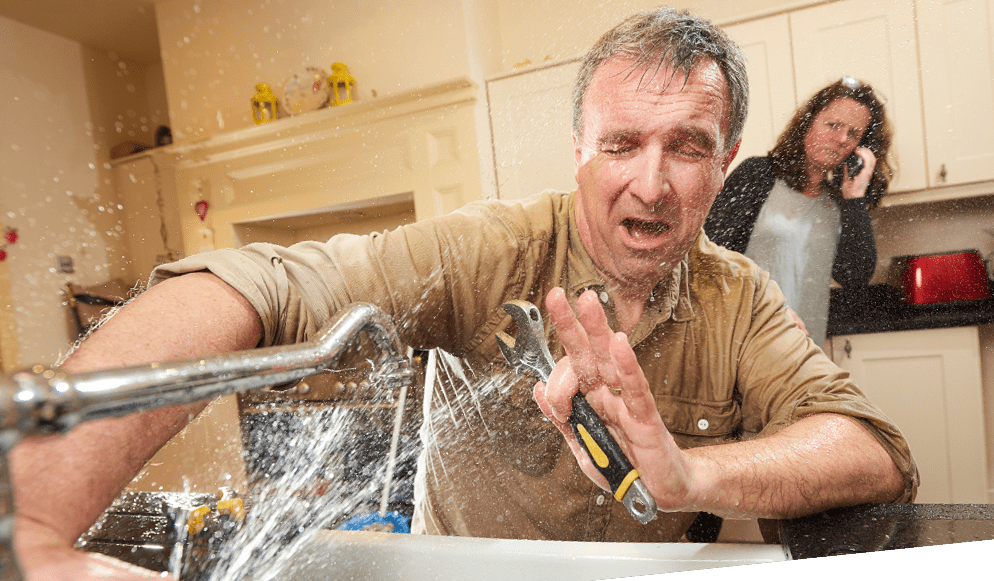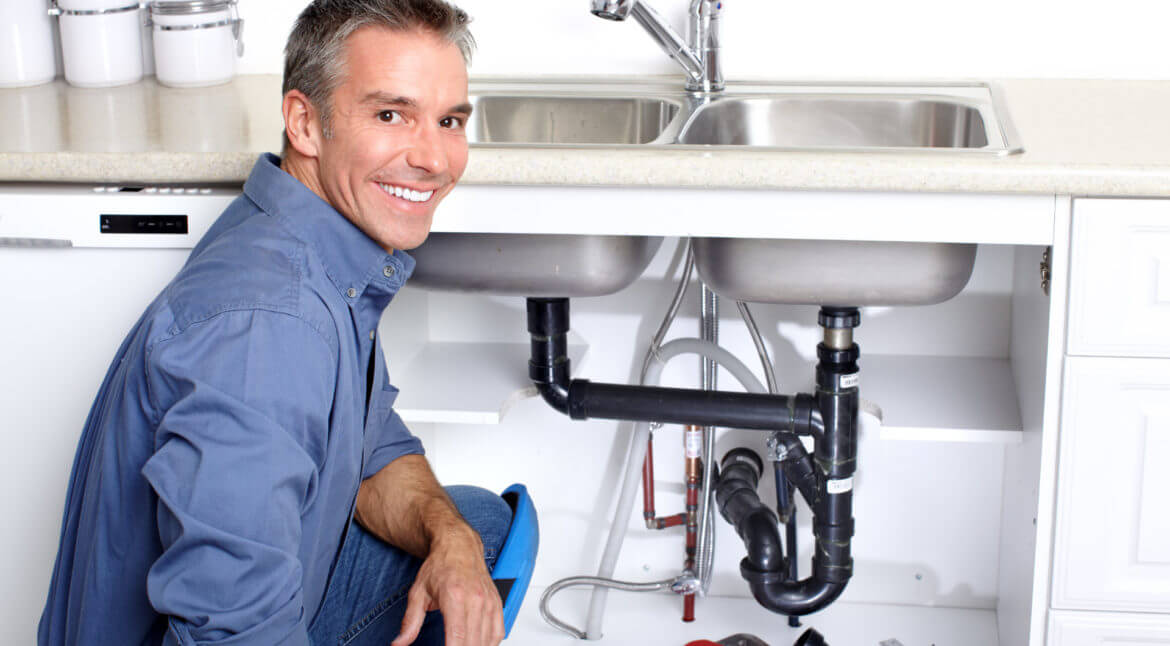Fast Tips for Plumbing Emergencies: Actions to Follow Until A Plumber Arrives
Fast Tips for Plumbing Emergencies: Actions to Follow Until A Plumber Arrives
Blog Article
What are your opinions on Expert Tips for Managing a Plumbing Emergency Until Help Arrives?

Plumbing emergency situations can strike any time, creating stress and anxiety and possible damages to your home. Whether it's a ruptured pipeline, a stopped up drain, or a leaking faucet, knowing how to manage the situation until a professional plumber gets here can conserve you from additional problems. This short article provides essential emergency situation pipes ideas to assist you reduce damage and reclaim control throughout a plumbing crisis.
Turn Off the Water
The very first step in any type of plumbing emergency is to shut down the water system. For localized issues, such as a dripping tap or bathroom, turn off the shutoff near the component. In the case of a significant leakage or burst pipeline, find your home's main water shut-off shutoff and turn it off instantly. Knowing the area of these valves beforehand can conserve important time during an emergency situation.
Shut Off Your Water Heater
In particular emergencies, such as a ruptured pipeline, it's a good idea to turn off your hot water heater. This avoids getting too hot or damage to the unit when water quits flowing. Shut off the power supply to the hot water heater (electric or gas) and let it cool to avoid prospective dangers.
Momentarily Stop a Burst Pipeline
A ruptured pipeline can bring about considerable water damages in minutes. To mitigate the problem:
Call a specialist plumbing promptly to deal with the problem completely.
Have an Emergency Plumbing Package
Prepare a fundamental pipes emergency situation package to manage small problems successfully. Your kit must include:
Having these devices on hand can make a substantial difference in your capability to manage emergencies.
Unclog Drains Pipes Safely.
A blocked drainpipe can be a frustrating and untidy issue. Right here's just how to tackle it:.
If these approaches do not work, prevent utilizing extreme pressure, as it might worsen the obstruction.
Handle Overflowing Toilets.
An overruning commode can cause immediate turmoil. Below's what you must do:.
Address Tiny Leakages with Temporary Repairs.
Little leakages can promptly come to be substantial problems if left unattended. Utilize these temporary fixes up until expert assistance gets here:.
While these solutions aren't irreversible, they can aid decrease water loss and damages.
Take Care Of Frozen Piping Meticulously.
In cooler environments, icy pipelines are a typical emergency situation. If you presume a frozen pipe:.
Know When to Call an Expert.
While quick fixes can help momentarily, specific plumbing concerns need instant specialist focus. Call a plumber if:.
Without delay getting in touch with a specialist makes sure the issue is solved correctly and avoids more problems.
Stop Further Damage.
Taking fast action to reduce damages can save you time and money in the future. Here's how:.
Final thought.
Pipes emergencies can be overwhelming, yet with the right knowledge and devices, you can take care of the situation successfully till help shows up. By switching off the supply of water, attending to tiny leakages, and using momentary solutions, you can minimize damage and keep your home safe. Keep in mind, these pointers are temporary services; constantly get in touch with a licensed plumbing to manage the root cause of the issue. Prep work and fast reasoning are your best allies in any plumbing emergency situation.
8 Helpful Tips for Managing Plumbing Emergencies at Home
If your plumbing system hasn’t failed once, wait for it because almost everyone has a story to tell. Sometimes, it could be simple emergencies such as a leaking pipe, a blocked cistern, or even a big burst pipe. In situations like this, you need to have some handy tips to save you some money and from possible damages.
Take care of minor issues early.
Sometimes, you could have avoided an emergency by taking proactive measures while it was still early. Some major plumbing emergencies can be a result of an ignored minor issue. We recommend that you have items like plumbing tapes and other related items. A plumbing tape can allow you to manage minor leaks before the plumber arrives.
Cut off the water supply.
This tip is essential in almost any type of leakage problem. For problems like minor leakages in the toilet or kitchen, turn off the supply that takes water to the affected pipes. If the leakage is a major pipe, you must shut off the supply valve to the entire building. This will help you avoid flooding your home and neighbors if you share a flat.
Know your plumbing system
Folks typically move into a new apartment without understanding the water supply around the building. This can prove disastrous if a water emergency arises and the plumber is far away. The previous tip will prove useless if you don’t practice this one. More importantly, know where your water shut-off valve is located – you’ll need that knowledge to prevent potential home floods.
Have some common handy tools
There are lots of plumbing emergencies that you can handle without hiring a plumber. That’s why you must keep some tools available always. Some tools that you can use to fix simple plumbing emergencies easily include plumbing tapes, screwdrivers, thread seal tapes, plungers, pliers, tape measures, and rubber gloves.
Insulate your pipes from cold
You’ll save yourself from many plumbing expenses if you protect your water pipes from the cold. This is because of the harmful effects that cold weather can have on your pipes. During winter, your pipes can burst from being overly expected to freezing temperatures. So, make sure insulators are there to keep the pipes working correctly.
Avoid practices that will clog your toilet.
Many people indulge in practices that can damage the plumbing system of the entire building. One of these is when they use their toilet to dispose-off garbage. They flush all kinds of things, such as paper towels, bandages, hairs, female sanitary products, etc., down the toilet. This will block your toilet in the long run, incurring unnecessary expenditures. Dump such waste in the trash instead.
Check your dials regularly.
Sometimes, there could be leakages in your home without noticing them in time. So, constantly monitor your water meter dial. If the dial is reading when there is nobody using water, this is an indicator that there is leaking. Check for leaks immediately. Call a plumber as soon as possible if you can’t find any.
https://www.constructionplacements.com/8-helpful-tips-for-managing-plumbing-emergencies-at-home/

We had been made aware of that report about Expert Tips for Emergency Plumbing Repairs from an associate on another website. Sharing is good. You just don't know, you may very well be doing someone a favor. Thank you so much for your time spent reading it.
Call Today Report this page